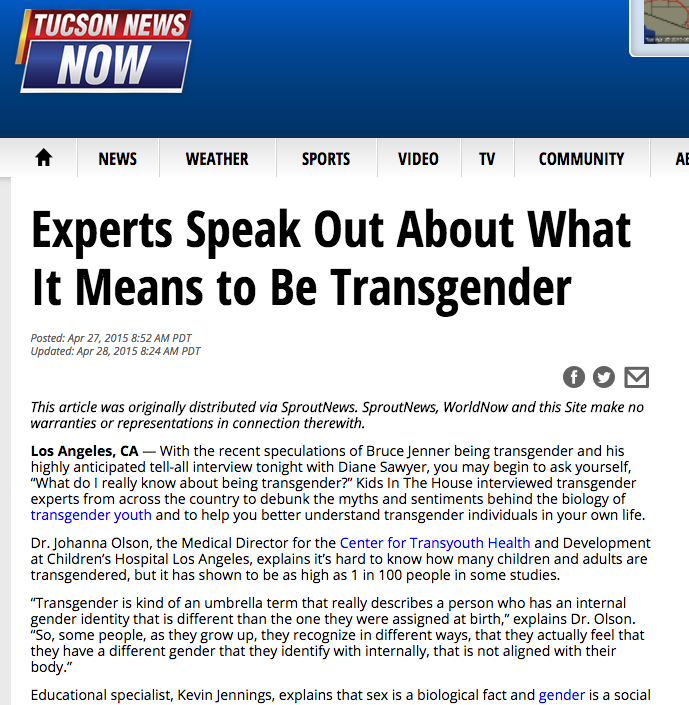Los Angeles, CA — With the recent speculations of Bruce Jenner being transgender and his highly anticipated tell-all interview tonight with Diane Sawyer, you may begin to ask yourself, “What do I really know about being transgender?” Kids In The House interviewed transgender experts from across the country to debunk the myths and sentiments behind the biology of transgender youth and to help you better understand transgender individuals in your own life.
Dr. Johanna Olson, the Medical Director for the Center for Transyouth Health and Development at Children’s Hospital Los Angeles, explains it’s hard to know how many children and adults are transgendered, but it has shown to be as high as 1 in 100 people in some studies.
“Transgender is kind of an umbrella term that really describes a person who has an internal gender identity that is different than the one they were assigned at birth,” explains Dr. Olson. “So, some people, as they grow up, they recognize in different ways, that they actually feel that they have a different gender that they identify with internally, that is not aligned with their body.”
Educational specialist, Kevin Jennings, explains that sex is a biological fact and gender is a social construction.
“The problem for transgender kids often is that their gender expression does not match what other people think it should, based on their biological sex,” he explains. “That is where they tend to run into difficulties because people tend to be very unaccepting of people whose gender expression doesn’t match up with what people think it should, based on their biology.”
Clinical Psychologist, Dr. Diane Ehrensaft, explains to parents that the most important thing to do is to listen to what their child is trying to tell them. If your son starts telling you he is a girl, don’t tell him he is wrong. Listen to exactly what he is saying and then seek professional help to see if what your child is saying could mean they are transgender.
“If your child is transgender, then we [clinical psychologists] will find ways to support your child the best they can be, as the gender they are,” says Dr. Ehrensaft.
Leana Greene, Kids In The House CEO, has learned so much over the years through these interviews about the importance of accepting transgender children.
“The thing that has touched me the most is learning that you need to let your child be who they are,” Greene says. “The greatest gift you can give someone is to love and accept a person for who they are and not for who you want them to be.”
To learn more about transgender individuals, watch interviews with these experts on KidsInTheHouse.com




